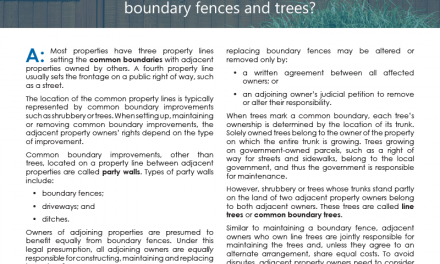The Department of Real Estate (DRE)’s quarterly bulletin is here once again, and this time things are a little different. The DRE is finally, officially out from under the Department of Consumer Affairs (DCA), where it was known as the California Bureau of Real Estate (CalBRE). This independence gives the department a lot more leeway to set its own agenda.
The newly freed DRE is using its latest bulletin as an opportunity to go over some of the sections of its department, what they do, and what they have been up to during the transition.
Related article:
The DRE reborn — recovering $4 million annually for licensees
From the ground up
Right off the bat, the DRE is quick to assure licensees it is working to build an efficiently working system under all the state rules and regulations that now apply to it as a department. Some of this work includes:
- rebuilding their accounting and budgeting section;
- rebuilding their human resources section;
- adding a legislation section;
- creating a publications and communications section, including hiring a public information officer; and
- hiring an information security officer.
The licensing section
The DRE’s licensing section deals with exactly what you’d expect — licensing (including examinations) and renewals for both real estate licensees and Nationwide Multistate Licensing System (NMLS) license endorsements.
Along with providing an update on licensing statistics (which can also be found on our journal), the DRE is looking to review and improve their licensing examinations to make sure they are representative of the acknowledge and abilities licensees will need in the course of their real estate practice.
The licensing section is also leaning heavily into technology this coming year, citing forthcoming improvements to their eLicensing system and their public information phone system.
Related article:
Enforcement and auditing
The enforcement section is the arm of the DRE focused on investigating complaints filed against licensees, subdividers and unlicensed individuals where real estate transactions are at issue. The section will only investigate potential violations of either the Real Estate Law or Subdivided Lands Law.
Of course, many disciplinary actions from the DRE’s enforcement section are a result of their audit section, which focuses primarily on trust fund handling violations. This year alone, the DRE’s audit section discovered more than $10.9 million in trust fund shortages from both investigative and proactive audits.
Related article:
Information technology services
The DRE’s information technology staff is also working to improve or implement some department systems, such as:
- Subdivisions Online Public Report Application System (SOPRAS), an online submission system for public subdivision reports to the DRE;
- Voice over Internet Protocol (VoIP) conversion for the DRE’s phone system;
- their Interactive Voice Response (IVR) system, in order to handle processing the high volume of calls received by the DRE.
MLA for MLOs
The Mortgage Loan Activities (MLA) section performs many of the same activities as the enforcement section, with a specific focus on mortgage loan originators (MLOs). Some of the duties of the MLA section include:
- background investigations;
- reports compliance;
- voluntary mortgage loan advertising reviews; and
- providing industry and consumer resources.
Editor’s note — first tuesday offers a comprehensive 8-hour NMLS continuing education course for MLOs.
Subdivision reporting
The DRE is also ramping up the power of their subdivision section, which oversees public reports, permits and registrations for subdivisions marketed in California. With the permit process, the subdivision section is focused largely on consumer protection, including shielding buyers from fraud and misleading marketing.
As previously mentioned, they are also rolling out their SOPRAS system in order to streamline the application process for subdivisions.
The legal section
Finally, we have the DRE’s legal section. Of course, this works in conjunction with the enforcement and audit sections in order to pursue disciplinary actions for licensees who have been found in violation of real estate law.
However, the legal section also manages the Consumer Recovery Fund, an invaluable resource which compensates victims of real estate fraud. Like most parts of the DRE, the legal section has been hard at work, even through the transition out from under the DCA.
And that’s all the time we have! With the DRE’s newly acquired independence, it is sure to emerge from the tail end of the transition process better, faster and stronger. We look forward to seeing what they have in store to improve the experience for licensees, course providers and homebuyers and sellers all over the state of California.














